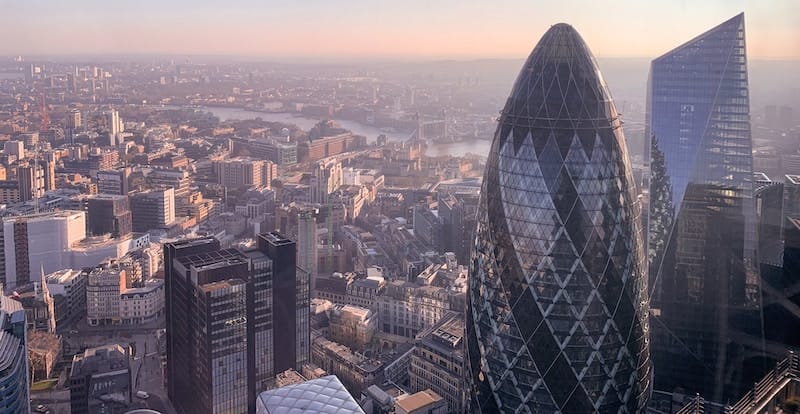How to contextualise the Labour Party’s internal dispute over its Israel-Gaza stance?
On 7 October 2023, Israel experienced a terrorist attack that was worse, in per capita terms, than 9/11. The Israeli government’s response — which has seen Gaza’s supplies of electricity, food and fuel cut off and thousands killed in a bombing campaign — now occupies the concerns of an international community trying, desperately, to avoid escalation.
That’s the international backdrop as SW1 considers Keir Starmer and the Labour Party’s response to the crisis, which has so far featured a de facto shadow ministerial revolt, councillor resignations and public rebukes from presumed “loyalists”.
Then there’s the national political picture in the UK which suggests the fundamentals are strong for Starmer’s Labour. Party conference season, which the commentariat collectively concluded the Labour leader won, ended this month; there followed two seismic by-election victories in Mid Bedfordshire and Tamworth, both erstwhile Conservative heartlands. Those were Labour’s merry political realities that set the scene for an outbreak of disharmony in the last few weeks.
Of course, while the response of Starmer, as Leader of the Opposition and presumed PM-in-waiting, is viewed as a “test” — neither his most outspoken critics, nor his staunchest allies, would suggest a novel Labour line could practically alter the course of events in the Middle East. In fact, as far as this article is concerned, the very act of viewing the conflict in the Middle East through the prism of Starmer’s party-management travails seems crass and indelicate.
Still, that the deadly conflict in Israel and Gaza has become implicated in an outbreak of disharmony in Labour is plain. And the origin point of Starmer’s present difficulties can be pinpointed to an LBC interview conducted earlier this month, where he stressed his steadfast support for Israel in the wake of Hamas’ 7 October attack.
For the Labour leader, however, appearing unequivocal and unambiguous in his support for a nation-under-attack came at a cost: he seemed to suggest that Israel had the right to withhold resources from Gaza.
The LBC presenter asked of Israel’s response to Hamas’ initial attack: “[Is a] siege appropriate? Cutting off power, cutting off water?”. The Labour leader responded: “I think that Israel does have that right. It is an ongoing situation.”
It took nine days for Starmer to clarify the comments. In his response, the Labour leader downplayed his apparent error and suggested his remarks were misconstrued: “I was saying yes, they have the right to self-defence — that right they do have — but not the right to withhold that humanitarian aid that needs to get in. It is now absolutely urgent”, he explained.
Starmer’s refusal to correct his comments on LBC — amid a face-saving PR operation and a carefully choreographed visit to a mosque in Wales — hardly helped the situation. Indeed, Starmer’s mosque visit immediately backfired after his hosts accused the Labour leadership of “gravely misrepresenting” the meeting with community representatives on social media.
In this way, the dispute over Starmer’s Israel-Gaza stance has now expanded far beyond any immediate consternation over what Starmer did or did not mean in his comments to LBC. Indeed, with over a dozen shadow ministers publicly rebuking the stance of their leader, senior frontbenchers have been forced to strike a careful, conciliatory balance.
Thus, shadow health secretary Wes Streeting has admitted people have been “upset and hurt” by Labour’s Israel-Gaza stance; Peter Kyle, the shadow science, innovation and technology secretary, said on Sunday the leadership will “continue engaging” with concerned colleagues; and Darren Jones, the shadow chief Treasury secretary, said of the internal critics: “It’s right and proper that individual MPs represent their individual constituencies in Westminster”.
So who are those individual MPs? Among the shadow ministers to have overtly broken rank on the conflict and defied collective responsibility are Naz Shah, Yasmin Qureshi, Paul Barker and Afzal Khan. Shah has said Israel’s response did not amount to “defence”; Qureshi has condemned what she called Israeli “collective punishment”; while Barker has called for “humanitarian cessations of military activity”.
Elsewhere, Jess Phillips, the shadow domestic safeguarding minister, shared a statement on Twitter/X by António Guterres, the UN secretary-general, in which he said: “I reiterate my appeal for an immediate humanitarian ceasefire.”
And shadow justice secretary Shabana Mahmood, an archetypal Starmer loyalist, has written to her constituents that she has informed party officials at “every level” that Starmer’s LBC remarks caused “immense distress”.
Outside the Parliamentary Labour Party, Sadiq Khan and Andy Burnham, the mayors of London and Greater Manchester, as well as Anas Sarwar, the party’s leader in Scotland, have all come out in favour of a ceasefire.
Starmer has yet to cross the rubicon of calling for a “ceasefire” in the conflict. He currently backs a “humanitarian pause” to allow water and other essential supplies to enter the Gaza strip, mirroring Downing Street’s stance. The Labour Party line on the Sunday morning media round was that calls for a ceasefire remained “ambiguous” because it was unclear what would be achieved.
What the dispute over Keir Starmer’s Israel-Gaza stance means for Labour
The outbreak of ill-discipline in Labour ranks is striking because it is entirely antithetical to how so many have characterised Starmer’s intra-party authority. During his tenure as Labour leader, Starmer has so often revelled in internal disputes: howls from the dispossessed and never-possessed, typically from the party left, were at every turn leveraged by Starmer as a way of showing how much he had changed Labour since Jeremy Corbyn’s tenure as leader.
Therefore, Starmer’s present travails could be viewed as evidence the Labour leader has neglected the “soft left” elements of his party coalition and, in turn, overcorrected from the Corbyn years.
But this conclusion misreads the nuances of the Starmer’s new party-management problem. Because, as the interventions from Jess Phillips, who ran to the right of Starmer in the 2020 Labour leadership contest, and loyalist Shabana Mahmood suggest, this current dispute cannot merely be broken down along factional lines.
The dividing lines seem, instead, a product of senior Labour figures speaking to different audiences. For example, during his now-infamous LBC interview, it was clear Starmer viewed his steadfast support for Israel as a way of further signalling a departure from the Corbyn years. Ambiguity, the Labour leader would have calculated, could have been exploited by the Conservatives and Rishi Sunak, a PM who takes his responsibilities as a diplomat seriously, indeed.
Thus, as the conflict has progressed, Starmer has taken, just like the PM, to shadowing the approach of the United States and Joe Biden in the White House, prioritising his assumed diplomatic responsibilities as a PM-in-waiting.
Conversely, Starmer’s intra-party critics choose instead to act on the concerns of their constituents and the Muslim communities they represent. They implicitly express fears that they will lose the trust of a reliably Labour-voting bloc if the party remains unmoving in its support for Israel.
In this way, Starmer’s decision to shadow Washington has significantly constrained his ability to respond to the concerns of his shadow ministers. But that is not to say the Labour leader’s stance has not, and will not change; in fact, his recent call for a “humanitarian pause” to allow aid into Gaza mirrored the change in diplomatic strategy conducted by the Biden administration.
A factor that could prove significant as the conflict progresses is that the US president is facing his own domestic difficulties over his Israel-Gaza stance. US progressives have seethed that Biden, in refusing to condemn Isreal’s actions and suggesting he has “no confidence” in the death count provided by the Gaza health ministry, is abetting the deadly conflict. “We will remember where you stood”, Democratic Congresswoman Rashida Tlaib, the only Palestinian American in Congress, wrote in a social media post recently. There could be reason to hope that this domestic political dynamic in the US could, in time, soften Biden’s positioning and present Starmer with a ladder to climb down on the conflict.
But, in any case, it is clear that Starmer sees himself as a line taker rather than line maker on his Israel-Gaza stance. It begs the question of how his intra-party critics, who have proved far more amenable to the concerns of Muslim voters, choose to respond. They will need to prove that they are being heard in Labour circles — and meetings with the Labour leader, in lieu of any change in messaging, will not be enough.
Thus, there is also no disguising the fact that, right now, Starmer is in damage limitation mode on his Israel-Gaza stance: collective responsibility has been curbed, intra-party meetings are being conducted with critics, and conciliatory balances are now struck on media rounds.
But, while the immediate damage for Starmer flowed from the initial LBC interview, this no longer appears a test of the Labour leader’s communications strategy: it is time to decide, Starmer’s critics insist, what kind of leader he wants to be.
Ultimately, although Starmer’s authority has rarely seemed under such concerted challenge, his way forward — with his agency restricted by his Atlanticism and self-assumed diplomatic responsibilities — is far from clear.
Josh Self is Editor of Politics.co.uk, follow him on Twitter here.
Politics.co.uk is the UK’s leading digital-only political website, providing comprehensive coverage of UK politics. Subscribe to our daily newsletter here.
Source


